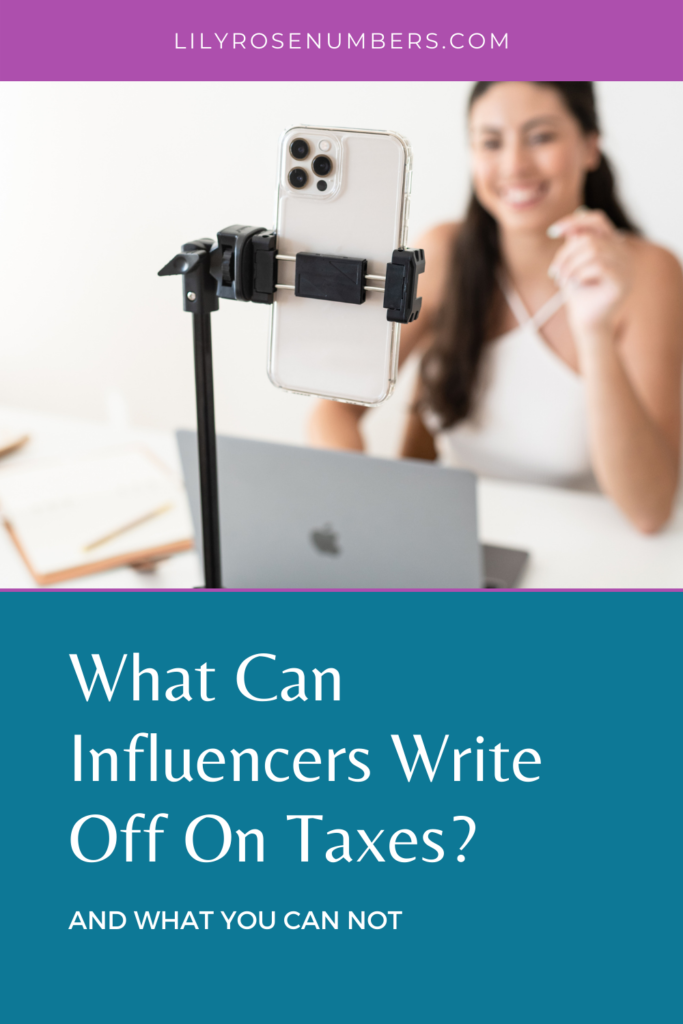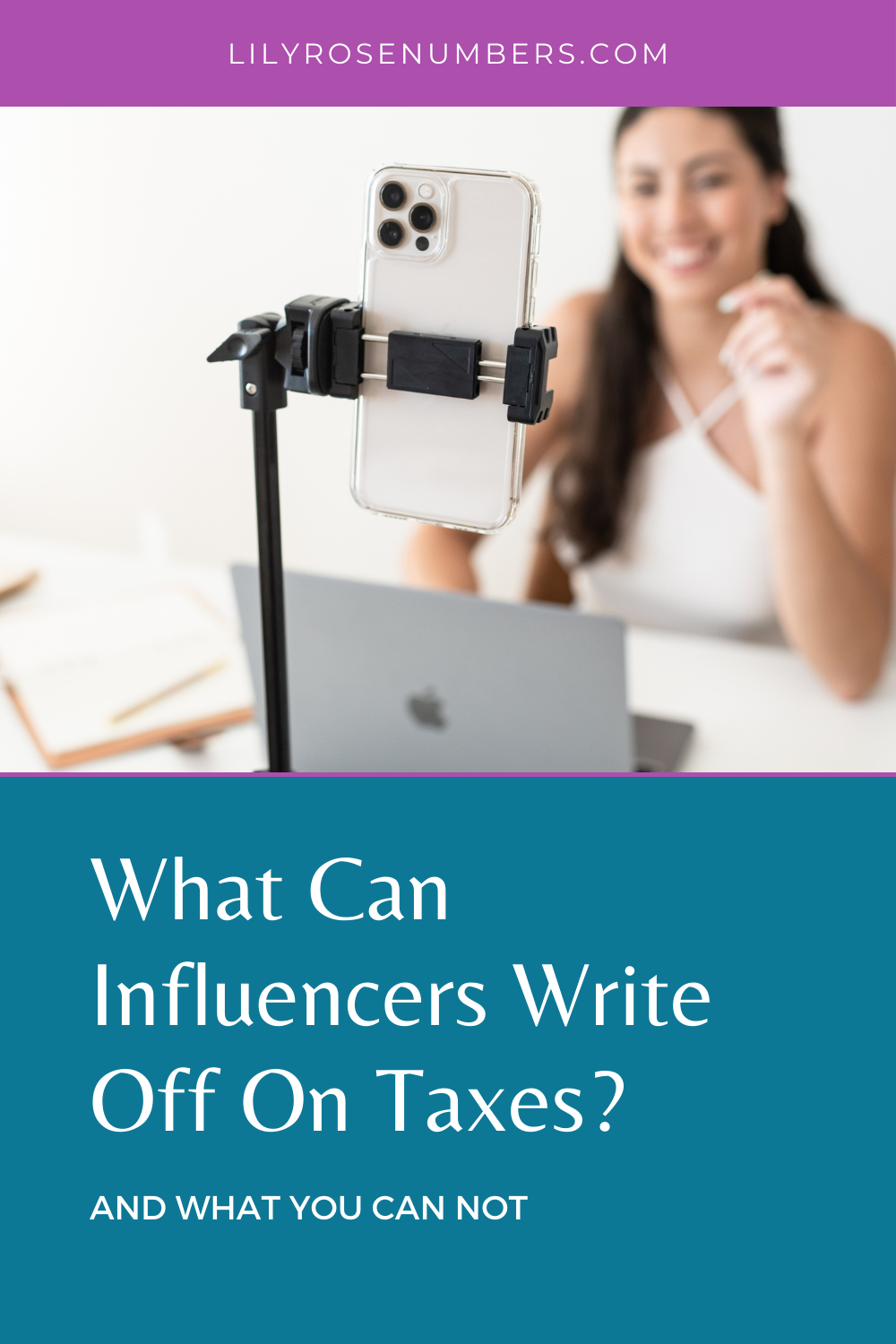
As an Influencer, you are starting to make money and the IRS wants their portion. If you made at least $600 from your blogs, posts, social media channels or advertising a product, you should receive a 1099-NEC form. You can reduce the amount you pay the IRS by keeping accurate records and including a wide variety of expenses that your job requires which may include (but are not limited to):
- Advertising and marketing costs
- Corporation startup fees
- Business license fees
- Computer, tablet, phone or smartphone costs
- Cameras and other filming equipment (some of these items can get pricey) and if the item is $2,500 or more, you can depreciate the item over a span of 3-5 years
- Dues and subscriptions
- Microphone equipment
- Editing software
- Trademark and copyright fees
- Stock photography subscriptions
- Office furniture
- Website development
- Email or answering service
- Internet service fees
- Home office and office supplies
- Travel for your business
- Business mileage
- Subcontractors and employees
- Telephone service
- Agent fees
- Bookkeeping fees
- Tax Preparation Fees
- Legal Fees
- Uniforms that have your company logo on them
- Business meals
What can’t you write off?
I get this question a lot. I respond with, “if you are being audited, will the IRS agent agree with you that it is a true business expense and only used for business purposes?” Here are some items that I have come up with that are not deductible (just to name a few):
- Clothing that does not have your business logo. The IRS is not going to agree with you that you bought that Fendi bag or the Lululemon outfit to appear before your audience. In simple terms if you can wear it somewhere else then it is not a true business expense. To get around this, have your business logo appliquéd on it and voila, it is a business expense. It is also a great form of advertising your brand to your followers.
- Haircuts and makeup
- Personal travel, is not deductible. If you travel for business but decide to extend a day or two for personal, only the business time is deductible.
- Personal mileage
- Personal use of telephone. If you use your phone half for business and half for personal, then you can only deduct the half for the business portion.
How does an Influencer distinguish between hobby income from self-employment income?
Start by asking yourself these 9 questions to determine if you have a business or a hobby:
- Are you keeping accurate records?
- Do you intend for your business to be profitable and does your time and effort reflect that?
- Do you depend on the income from the activity to survive?
- Are you attempting to make your business more profitable?
- Do you have enough knowledge on the subject to turn it into a business?
- Are your losses a normal part of startup costs or are they due to circumstances you can’t control?
- Have you made a profit doing a similar business or activity in the past?
- Was your past profit consistent or did it see more activity in some years and less in others?
- Do you expect to make a profit from the activity in the future?
Try to answer these questions with facts and be honest with yourself. If you answered ‘yes’ to most of these questions, you probably have a business. If you answered ‘no’ to most of them, you probably have a hobby.
If answering these questions still leaves you confused, consider this, if you made a profit in three of the last five years, the IRS considers your activity for-profit and a business.
If you are on the verge of your business becoming a hobby due to lack of profitability, keep extensive records and receipts. Make a short-term business plan to try to increase profit. This is also good for your records in case you get audited.
Do you need some support to get started? Book your consultation here.
